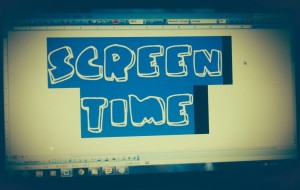In recent times, the use of computer technology has increased hugely. Tablets, laptops and interactive whiteboards feature commonly in lessons countrywide, from early years to A Level. The new National Curriculum requires all schools to teach coding to five year olds in order to produce a generation of learners able to program as easily as they read and write. Make no mistake: technology is now embedded in school life, both as a tool and an object of study. But let me make this clear from the outset: paper-based learning will always be more effective than screen-based learning.
The Disadvantage of Screen-Based Learning
It’s widely acknowledged that too much screen time (more than an hour or two per day) can increase the likelihood of a child suffering behavioural problems, anxiety and depression. Furthermore, screen time in the evening can suppress your child’s ability to get off to sleep at bed time. If you are paying for tuition, you want your child’s brain to be engaged in learning and the development of study skills, but too much screen time can lead to over-stimulation – the enemy of concentration. With more and more adults suffering from internet addiction, isn’t it sensible to strictly limit our children’s screen time?
It’s nearly seven years since we first opened the doors of our Urmston tuition centre: in that time we have amassed an unrivalled library of resources, including hundreds of textbooks, thousands of worksheets, many kinaesthetic learning aids and a smattering of computer technology. Our years of experience have taught us that effective tuition is led by face-to-face input from a qualified teacher, followed by paper-based application and practice of new learning. A brief spell on the computer can offer reinforcement of concepts already practised but it isn’t the best way to introduce new learning.
f you are studying Non-verbal Reasoning (a key requirement for many grammar school entrance exams), your visual memory will play a great part in assisting you with these picture puzzles. Computer practice of Non-verbal Reasoning is highly ineffective if your exam is on paper.
The Advantages of Learning on Paper
Our brains are complex organisms and we all have differing learning styles, but here’s an absolute: we are sensory learners. Our brain recalls what we see, hear, say, touch and taste. For example, when learning to spell, our recollection comes not from simply remembering what the words look like. Few of us have a truly ‘photographic’ memory. Instead, our brain recalls how our hand looks when writing the word down (on paper), as well as the sound of the letters as we spell words aloud. You can find out more about this on our previous blog post about simultaneous oral spelling.
When preparing for exams (e.g. entrance exams for Trafford’s grammar schools, GCSEs or SATs), your brain will store memories of practice questions you have attempted. When you encounter similar questions during the real examination, your brain will dredge up the recollection of your previous attempt. Part of this recollection is visual, so this is much harder for your brain if you only practise on computers and your exam is paper-based. Most examinations are paper-based, so you can make exams much easier for yourself if you mainly practise on paper.
IWhat other tuition centres might not tell you
Why, you might wonder, am I writing a piece in praise of paper? We might be just a small, independent tuition centre in Urmston, but we see ourselves as offering the very highest standard of tuition. We don’t want anyone to confuse us with other tuition centres and it seems that many tuition centres conduct lessons through the medium of computer technology.
This is particularly true of the ‘big chains’ (Kumon, I should point out, is a notable exception to this). Some tuition centres even promote this as a key benefit of their service. Browsing some websites recently, I noticed that a big (Australian) tuition centre was boasting that ‘each child has their own pc’ in lessons. Walking past another big chain local tuition centre, I was reminded of a call centre: banks of children wearing headphones were sitting in front of computers while their baby-faced, polo-shirted tutors bobbed around, endeavouring to keep them on task.
Don’t miss your opportunity
Screen-based learning is all too often a damp squib, a red herring and a missed chance: whilst computers open the door to information retrieval and can be helpful for a short burst of reinforcement, it is completely ill-judged to base all study around them. Schools know this, universities know this and Better Tuition’s team of qualified teachers knows this. We learn from doing, and from remembering what we did.
Tuition is a golden opportunity for your child: don’t make the wrong choice. Developing learners’ study skills, concentration and attainment is all in a day’s work for us at our Urmston tuition centre. If you’d like to find out more about our service, why not call Paul Syrett or Christine McLaughlin on 0161 748 3912 to book a free, no obligation assessment for your child.




